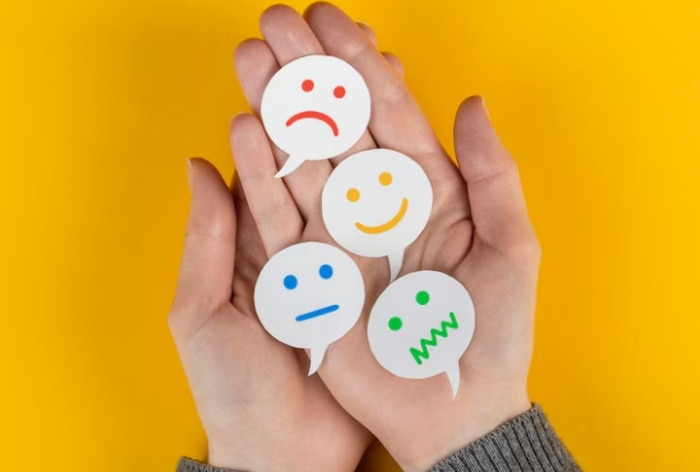Repressing emotions can pose a great risk to your health, not only mentally but also psychologically. An expert tells us how to manage your emotional quotient on a daily basis.
Emotions make us human. Feeling sad, happy, stressed, etc. is inevitable in different situations in life, and sharing emotions is as essential as keeping a fit body. Although it is underrated, emotional well-being is important to maintaining sanity in this busy-driven world. Feeling intense emotions is never comfortable, but it is an important part of what makes us human. When we suppress feelings (be it sadness, anger, or guilt), they don’t just go away, but can begin to affect our health in ways we may not even realize. The connection between our emotional state and physical well-being is powerful. Several studies show how deeply repressed emotions can fester within us and lead to serious health problems down the road.
Repressed emotions are the feelings we keep bottled up, often because we’re afraid of being judged, feeling vulnerable, or simply because we think it’s easier than facing them head-on. Maybe it’s because of societal expectations or past trauma – whatever the reason, ignoring our emotions doesn’t make them go away, it just buries them deeper. In the short term, it may feel like we’re coping, but over time, this repression can build up and affect not only our emotional health but our physical health as well. It’s like putting a lid on a boiling pot – it’s only a matter of time before it boils over.
Why you shouldn’t suppress your emotions?
India.com got in touch with Luke Coutinho, an expert on integrated lifestyles, who explained why repressing emotions is not the way to lead a healthy life. Coutinho said, “Our bodies are designed to handle stress in short bursts, activating the sympathetic nervous system, often called the ‘fight or flight’ mode. But when we keep our emotions bottled up, we end up living in this state much longer than we should. This chronic activation creates a constant flow of stress hormones like cortisol, which starts wearing down our body. When cortisol levels stay high, they can lead to inflammation, weaken our immune system, and throw other hormones out of balance.”
For example, excess cortisol can inhibit the production of TSH (thyroid-stimulating hormone), leading to underactive thyroid, which in turn can cause fatigue, mood swings, and weight gain.
Over time, living in this state of stress makes us more susceptible to diseases such as high blood pressure, autoimmune diseases, and even neurodegenerative disorders such as Alzheimer’s and Parkinson’s.
In our experience coaching people with various ailments, we have seen that unresolved emotions are not only a mental burden: they are also a physical burden.
How to manage everyday emotions?
What can be done to ensure that unresolved emotions do not interfere with health and longevity? Coutinho explained that there are no shortcuts to numbing pain, fear, humiliation or resentment. Healthy emotional expression prevents the buildup of stress that could lead to serious health problems.
- Open up and talk about what’s going on inside you with a loved one, be it a friend, family member, or partner.
- Reaching out to a therapist, life coach, or licensed counselor can help you find your way back to balance.
- If you don’t have anyone to talk to, write it down on paper (or record a voice note) and throw it away to let go of those feelings.
- Methods such as journaling, sound healing, or emotional freedom techniques (EFT) also offer safe outlets for releasing pent-up emotions. Practices such as these help to cleanse the mind and body of negative energy, leading to better physical and mental health.
- Whether through movement, meditation or art, finding ways to express emotions is key to a healthy parasympathetic system, preventing long-term damage and promoting healing.
The key is simple: don’t let unexpressed emotions weigh you down. Find safe and healthy ways to express your feelings; by doing so, you can regain agency over your health and improve your well-being.
